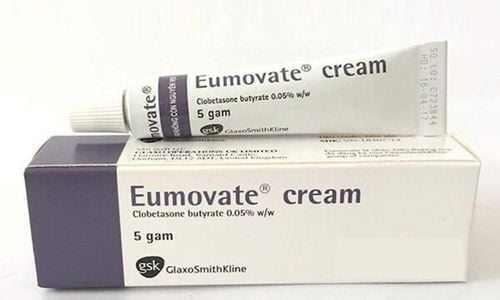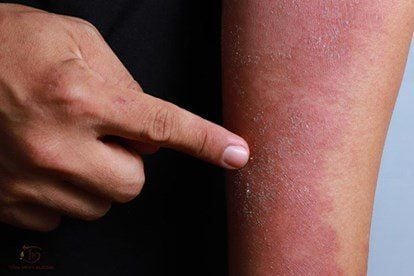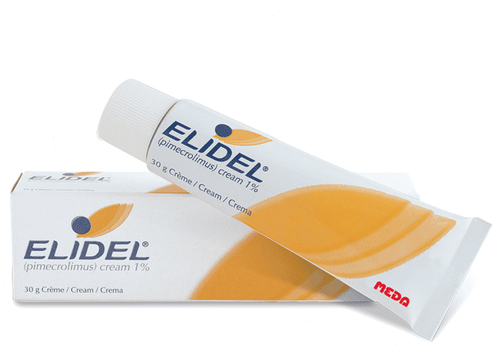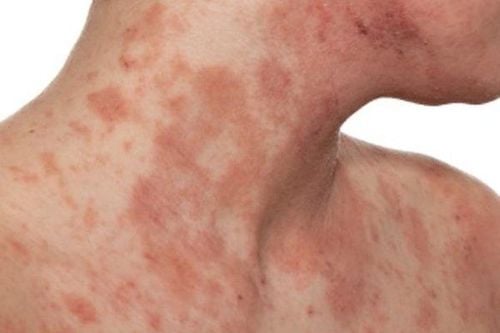This is an automatically translated article.
The article was professionally consulted by Specialist Doctor I Le Thi Thu Hang - Dermatologist, Department of Medical Examination & Internal Medicine - Vinmec Hai Phong International General Hospital. The doctor has over 12 years of experience in the field of dermatology.Many allergic diseases are associated with "allergic" antibodies called immunoglobulin E (immunoglobulin E: IgE). Therefore, a quantitative IgE test can help detect the cause of an allergy.
1. Mechanism of IgE quantification in the diagnosis of atopic dermatitis
IgE plays an important role in the pathogenesis of allergic diseases, including atopic dermatitis.The mechanism of allergy basically involves immunoglobulin E (IgE) antibodies, part of the body's immune system, binding to an allergen and then to a receptor on mast cells or basophils, which trigger the release of inflammatory chemicals such as histamine.
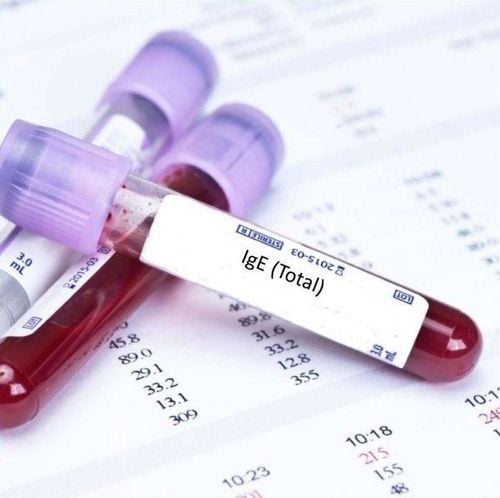
2. Indication for quantitative IgE . test
Quantitative IgE testing can be used to screen for and detect allergic diseases. This test measures the total amount of immunoglobulin E in the blood. It may also be used before or in conjunction with other allergen-specific IgE assays in humans with clinical manifestations of allergic disease.Immune globulin E is an antibody produced by the body's immune system in response to a threat. It is one of five immunoglobulins and is normally present in the blood in very small amounts.
Quantitative IgE test is often increased in allergic diseases such as atopic dermatitis, parasitic infection, pathology of white blood cells in the blood... In other words, elevated IgE index may be due to disease caused by allergies.
One or more allergen-specific IgE antibody tests may be ordered when a person has signs or symptoms suggestive of an allergy to one or more substances. Allergy signs and symptoms may include:
Rash Eczema Red itchy eyes Cough, stuffy nose, sneezing Asthma Itching and itching in the mouth Sore throat Difficulty breathing Abdominal pain, vomiting or diarrhea.
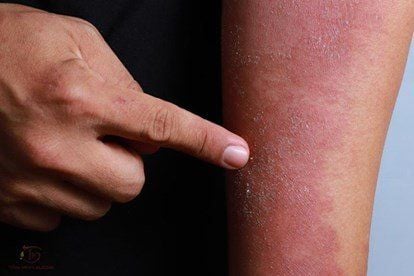
3. Is elevated IgE dangerous?
When IgE in the blood is ≥0.35 IU/mL, it means that the IgE in the blood is high. Measuring this to varying degrees for a substance often indicates an allergy to that substance, but it is also possible that even if a person's specific IgE test is positive, the person may not never had an actual allergic reaction when exposed to that substance.Additionally, a high IgE blood count is not necessarily predictive of the severity of an allergic reaction. A person's clinical history and other allergy tests, performed under close medical supervision, are essential to confirm the diagnosis of a patient with allergies.
When blood IgE is <0.35 IU/mL it usually indicates that a person may not have a true allergy to that particular allergen, but test results should always be interpreted and use carefully and with the advice of a doctor.
However, even if a person's IgE test is negative, there is still a small chance that the person may still have an allergy. For many allergens, there are very few studies on the sensitivity of the test, that is, the likelihood of a positive test in someone who is known to be allergic to that allergen.
Like other types of allergies, atopic dermatitis is a chronic disease that often progresses in stages, if not treated promptly, the patient itch, affects daily activities, sleep.. Late treatment can cause superinfection, causing unsightly scars due to scratching a lot. Therefore, when there are signs and symptoms of atopic dermatitis, you should go to reputable specialized facilities to be examined by a doctor and have appropriate treatment, to avoid unwanted complications.
Currently, the Dermatology Department of Vinmec International General Hospital has a package of examination and advice on treatment of atopic dermatitis for all customers of all ages. The product package gives customers an overview of the condition of atopic dermatitis, and advises on measures to help prevent recurrence.
When registering for the package of examination and consultation for treatment of atopic dermatitis, customers will receive:
Dermatological examination (without appointment) Perform tests such as: IgE quantification, fresh mycobacteria, Specific IgE levels for respiratory and food allergens (Panel 1 Viet), Rida Allergy Screen test (panel 1)
Please dial HOTLINE for more information or register for an appointment HERE. Download MyVinmec app to make appointments faster and to manage your bookings easily.





